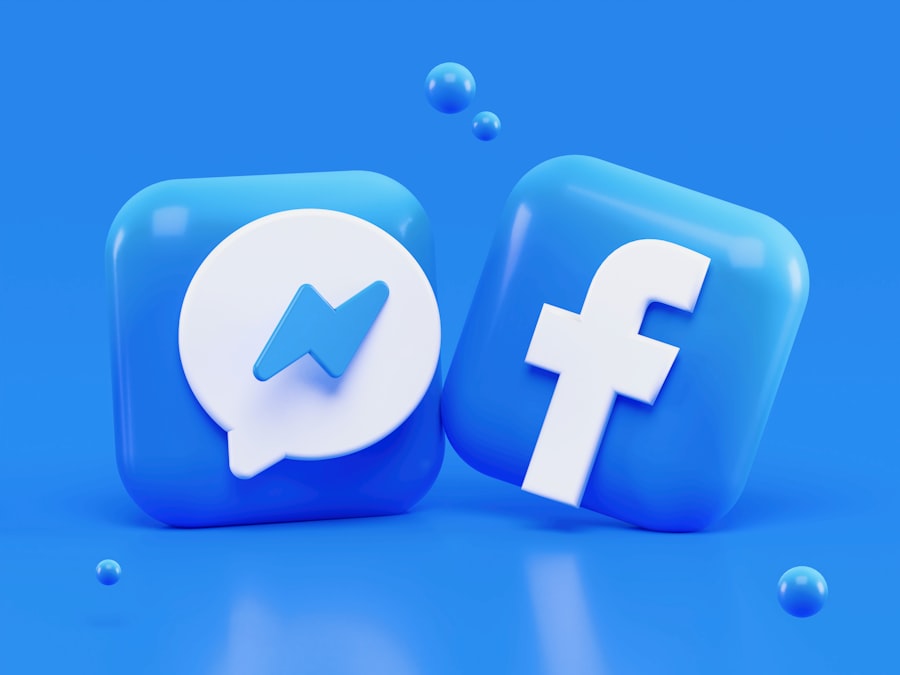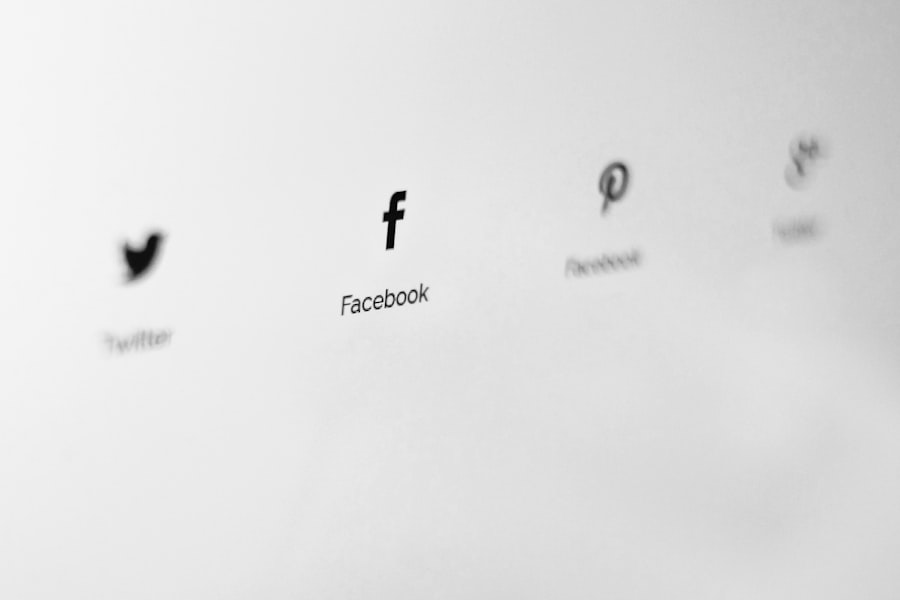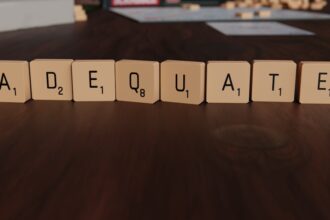In a world where social media platforms dominate communication, you might find yourself feeling more connected than ever. Yet, paradoxically, these platforms can foster a profound sense of isolation. You scroll through your feed, witnessing friends’ lives unfold in vibrant snapshots, yet you may feel a growing distance from them.
The curated nature of social media often leads to superficial interactions, where likes and comments replace genuine conversations. You might find yourself engaging in a digital dialogue that lacks the warmth and depth of face-to-face communication, leaving you feeling more alone despite the illusion of connection. Moreover, the constant barrage of updates can create a false sense of belonging.
You may feel compelled to present a polished version of your life, leading to a cycle of comparison and discontent. As you observe others sharing their highlights, you might begin to question your own experiences and relationships. This disconnect can lead to feelings of inadequacy and loneliness, as the very platforms designed to connect you can instead amplify your sense of isolation.
The irony lies in the fact that while you are physically connected to countless individuals, the emotional bonds that truly matter may be slipping away.
Key Takeaways
- The illusion of connection on social media can actually foster feelings of isolation and loneliness.
- Constantly comparing lives on social media can have damaging effects on mental health, leading to feelings of inadequacy and low self-esteem.
- Seeking validation and approval on social media can create pressure to perform and present a curated version of oneself, leading to anxiety and stress.
- Cyberbullying on social media can have hidden dangers and serious effects on mental health, leading to depression, anxiety, and even suicidal thoughts.
- The fear of missing out (FOMO) and anxiety linked to social media use can contribute to feelings of inadequacy and dissatisfaction with one’s own life.
Comparison Culture: The Damaging Effects of Constantly Comparing Lives on Social Media
As you navigate through social media, you may find yourself caught in a web of comparison. Each scroll reveals carefully curated images and stories that showcase the best moments of others’ lives. This constant exposure can lead you to measure your worth against an unrealistic standard, fostering feelings of inadequacy and self-doubt.
You might catch yourself thinking, “Why don’t I have that lifestyle?” or “What am I doing wrong?” This relentless comparison can erode your self-esteem and create a distorted view of reality. The impact of comparison culture extends beyond mere dissatisfaction; it can also lead to anxiety and depression. You may feel pressured to keep up with the seemingly perfect lives of others, leading to a cycle of striving for unattainable goals.
This can result in a sense of failure when you inevitably fall short. The more time you spend comparing yourself to others, the more disconnected you may feel from your own achievements and joys. It’s essential to recognize that social media often presents a highlight reel rather than an accurate portrayal of life, and understanding this can help mitigate the damaging effects of comparison.
The Pressure to Perform: The Impact of Seeking Validation and Approval on Social Media

In the age of social media, the pressure to perform can be overwhelming. You may find yourself curating your posts meticulously, seeking validation through likes and comments. This quest for approval can become all-consuming, leading you to prioritize online recognition over authentic self-expression.
Each notification may trigger a rush of dopamine, reinforcing the desire for more engagement and validation. However, this cycle can also lead to anxiety and stress as you constantly seek affirmation from your online audience. The need for external validation can distort your sense of self-worth.
You might begin to equate your value with the number of likes or followers you have, creating an unhealthy dependency on social media for self-esteem. This pressure can stifle your creativity and authenticity, as you may feel compelled to conform to trends or expectations rather than expressing your true self. Recognizing this pattern is crucial; it allows you to reclaim your identity beyond the digital realm and focus on what truly matters—your own happiness and fulfillment.
Cyberbullying: The Hidden Dangers of Online Harassment and its Effects on Mental Health
| Statistics | Findings |
|---|---|
| Percentage of teenagers who have experienced cyberbullying | 59% |
| Impact on mental health | Increased risk of depression and anxiety |
| Prevalence of cyberbullying on social media | 87% |
| Effect on academic performance | Decreased grades and school attendance |
| Reporting of cyberbullying incidents | Only 1 in 10 victims will inform a parent or trusted adult |
Cyberbullying has emerged as a significant concern in the digital age, affecting countless individuals across various platforms. You may have witnessed or experienced online harassment firsthand, which can leave lasting scars on mental health. The anonymity provided by social media often emboldens individuals to engage in hurtful behavior without facing immediate consequences.
This can create an environment where negativity thrives, leading to feelings of fear and vulnerability for those targeted. The effects of cyberbullying can be devastating. You might experience anxiety, depression, or even suicidal thoughts as a result of online harassment.
The constant barrage of negative comments can chip away at your self-esteem and sense of safety. It’s essential to recognize that cyberbullying is not just a fleeting issue; its impact can linger long after the initial incident. Seeking support from friends, family, or mental health professionals is crucial in navigating the emotional toll that cyberbullying can take on your well-being.
FOMO and Anxiety: The Fear of Missing Out and its Link to Social Media Use
The phenomenon known as FOMO (Fear of Missing Out) has become increasingly prevalent in today’s society, largely fueled by social media. As you scroll through posts showcasing friends at events or on vacations, you may feel an overwhelming sense of anxiety about not being part of those experiences. This fear can lead to compulsive checking of social media platforms, as you seek reassurance that you’re not missing out on something significant.
The constant exposure to others’ activities can create a cycle of anxiety that is difficult to break. FOMO can also lead to impulsive decision-making as you strive to participate in every event or trend showcased online. You might find yourself overcommitting or attending gatherings out of obligation rather than genuine interest.
This behavior can ultimately lead to burnout and dissatisfaction, as you prioritize external validation over your own needs and desires. Recognizing the impact of FOMO is essential; it allows you to take a step back and evaluate what truly brings you joy, rather than succumbing to the pressures imposed by social media.
The Unrealistic Standards of Beauty: How Social Media Contributes to Body Image Issues

Social media has become a breeding ground for unrealistic beauty standards that can significantly impact your body image. As you scroll through images of influencers and celebrities showcasing seemingly flawless appearances, it’s easy to internalize these ideals as the norm. You may find yourself comparing your own body to these curated images, leading to feelings of inadequacy and dissatisfaction with your appearance.
This constant exposure can contribute to body image issues and even eating disorders for some individuals. The filters and editing tools available on social media further exacerbate this problem by creating an unattainable standard that few can realistically achieve. You might feel pressured to conform to these ideals, leading to unhealthy habits in pursuit of an idealized body type.
It’s crucial to remember that these images often represent a distorted reality, crafted through editing and manipulation. Embracing body positivity and recognizing the diversity of beauty can help combat the negative effects of social media on body image.
Addiction and Dependency: The Compulsive Nature of Social Media Use and its Impact on Mental Health
As social media becomes an integral part of daily life, many individuals find themselves grappling with addiction and dependency on these platforms. You may notice that checking notifications or scrolling through feeds has become a compulsive behavior that interrupts your daily activities. This dependency can lead to feelings of guilt or shame as you realize how much time is spent online rather than engaging in meaningful interactions or pursuits.
The compulsive nature of social media use can have detrimental effects on mental health. You might experience increased anxiety or depression as a result of excessive screen time and reduced face-to-face interactions. The constant need for stimulation from social media can also hinder your ability to focus on tasks or enjoy moments without distraction.
The Distortion of Reality: How Social Media Contributes to Perceived Happiness and Success
Social media often presents a distorted view of reality, where happiness and success are showcased in carefully curated posts. As you scroll through feeds filled with smiling faces and extravagant lifestyles, it’s easy to fall into the trap of believing that everyone else is living a perfect life while you struggle with your own challenges. This distortion can lead to feelings of inadequacy and discontentment as you compare your behind-the-scenes reality with others’ highlight reels.
The pressure to portray an idealized version of life can create a cycle where individuals feel compelled to share only their successes while hiding their struggles. You might find yourself questioning your own achievements or feeling like you’re falling behind in life compared to others. It’s essential to remember that social media often highlights only the surface level of people’s lives; behind every perfect post lies a complex reality filled with ups and downs.
Embracing authenticity in both your online presence and personal life can help combat this distortion.
The Loss of Privacy: The Mental Health Implications of Living in a Digitally Transparent World
In today’s digitally connected world, privacy has become increasingly elusive. As you share moments from your life online, you may inadvertently expose yourself to scrutiny and judgment from others. This loss of privacy can have significant mental health implications, as the fear of being constantly watched or evaluated may lead to heightened anxiety and stress levels.
You might feel pressured to curate your online persona carefully, fearing backlash or negative comments from others. This constant vigilance can create an environment where you feel unsafe expressing your true self or sharing vulnerable moments. It’s essential to establish boundaries around what you’re comfortable sharing online and prioritize your mental well-being over external validation.
By reclaiming control over your digital footprint, you can foster a healthier relationship with social media.
The Rise of Online Trolling: The Psychological Toll of Dealing with Online Hate and Negativity
Online trolling has become a pervasive issue in today’s digital landscape, affecting individuals across various platforms. If you’ve ever encountered hateful comments or negativity directed at you online, you know how damaging it can be to your mental health. The anonymity provided by social media often emboldens individuals to engage in hurtful behavior without facing consequences, creating an environment where negativity thrives.
Dealing with online hate can lead to feelings of isolation, anxiety, and depression as you grapple with the impact of others’ words on your self-esteem. You might find yourself questioning your worth or feeling unsafe in expressing your opinions online due to fear of backlash. It’s crucial to develop coping strategies for managing online negativity, such as seeking support from friends or mental health professionals who understand the toll it takes on your well-being.
Seeking Help: How to Safeguard Your Mental Health in the Age of Social Media
In an era where social media plays such a significant role in daily life, safeguarding your mental health is more important than ever. If you’re feeling overwhelmed by the pressures and challenges associated with social media use, seeking help is a vital step toward reclaiming your well-being. Consider reaching out to friends or family members who can provide support and understanding as you navigate these challenges.
Additionally, setting boundaries around your social media use can significantly improve your mental health. You might consider designating specific times for checking notifications or limiting exposure to certain platforms that contribute negatively to your well-being. Engaging in offline activities that bring you joy—such as spending time in nature, pursuing hobbies, or connecting with loved ones—can help restore balance in your life.
Ultimately, prioritizing mental health in the age of social media requires self-awareness and intentionality. By recognizing the potential pitfalls associated with online interactions and taking proactive steps toward safeguarding your well-being, you can cultivate a healthier relationship with social media while fostering genuine connections in both digital and real-life spaces.
Social media has become an integral part of our daily lives, yet many users report feeling a sense of emptiness after prolonged use. This phenomenon can be attributed to the curated nature of social media platforms, where users often compare their lives to the seemingly perfect lives of others, leading to feelings of inadequacy and dissatisfaction. An insightful article on this topic can be found on the Unplugged Psychology website, which delves into the psychological effects of social media and offers strategies to mitigate its negative impact. For more information, you can read the article by visiting



